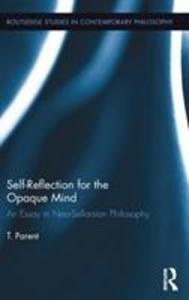
Zustellung: Fr, 11.07. - Di, 15.07.
Versand in 7 Tagen
VersandkostenfreiBestellen & in Filiale abholen:
This volume attempts to solve a grave problem about critical self-reflection. Psychological studies indicate not just that we are bad at detecting our own "ego-threatening" thoughts; they also suggest that we are ignorant of even our ordinary thoughts. However, self-reflection presupposes an ability to know one's own thoughts. So if ignorance is the norm, why attempt self-reflection? While admitting the psychological data, this book argues that we are infallible in a limited range of self-discerning judgments-that in some cases, these judgments are self-fulfilling or self-verifying.
Inhaltsverzeichnis
Part I: Preliminaries
Preamble: Is Philosophy Anti-Scientific?
1. Introduction: How is Rational Self-Reflection Possible?
2. The Empirical Case against Infallibility
Part II: Knowledge of Thought
3. Infallibility in Knowing What One Thinks
4. Objection 1: It's Apriori that Water Exists
5. Objection 2: Thought Switching
6. Content Externalism Does Not Imply Wayward Reflection
Part III: Knowledge of Judging
7. Infallibility in Knowing What One Judges
8. Infallibility in Knowing What One Expresses
9. Objection 1: It's Apriori that the Mental Exists
10. Objection 2: Attitude Switching
11. Attitude Confabulation Does Not Imply Wayward Reflection
Part IV: Denoument
12. Conclusion: How Rational Self-Reflection is Possible
Preamble: Is Philosophy Anti-Scientific?
1. Introduction: How is Rational Self-Reflection Possible?
2. The Empirical Case against Infallibility
Part II: Knowledge of Thought
3. Infallibility in Knowing What One Thinks
4. Objection 1: It's Apriori that Water Exists
5. Objection 2: Thought Switching
6. Content Externalism Does Not Imply Wayward Reflection
Part III: Knowledge of Judging
7. Infallibility in Knowing What One Judges
8. Infallibility in Knowing What One Expresses
9. Objection 1: It's Apriori that the Mental Exists
10. Objection 2: Attitude Switching
11. Attitude Confabulation Does Not Imply Wayward Reflection
Part IV: Denoument
12. Conclusion: How Rational Self-Reflection is Possible
Produktdetails
Erscheinungsdatum
22. Dezember 2016
Sprache
englisch
Seitenanzahl
310
Autor/Autorin
T. Parent
Verlag/Hersteller
Produktart
gebunden
Gewicht
602 g
Größe (L/B/H)
235/157/21 mm
ISBN
9781138668829
Entdecken Sie mehr
Bewertungen
0 Bewertungen
Es wurden noch keine Bewertungen abgegeben. Schreiben Sie die erste Bewertung zu "Self-Reflection for the Opaque Mind" und helfen Sie damit anderen bei der Kaufentscheidung.










